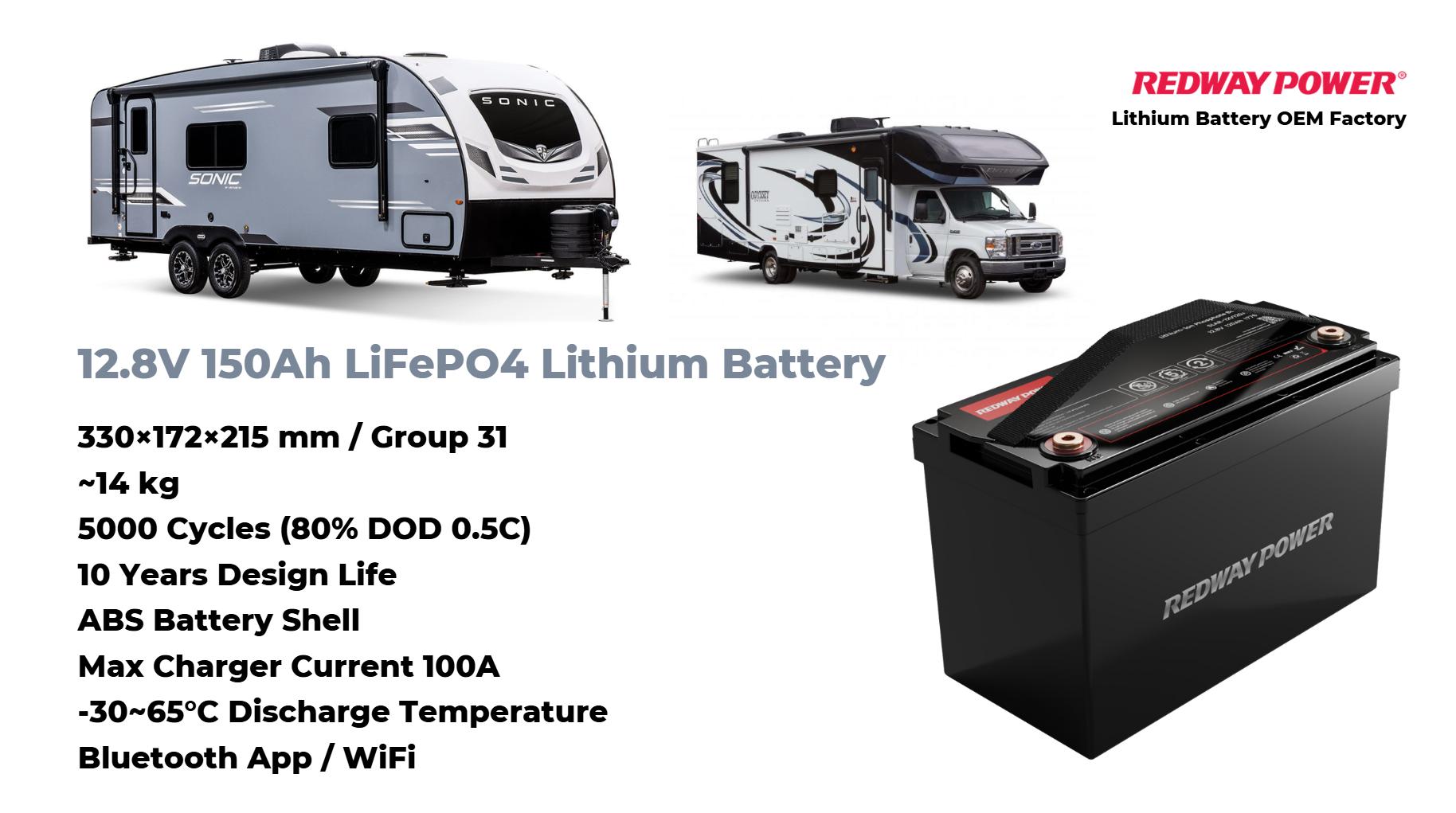
How to Choose and Maintain Your RV Battery for Optimal Performance
Choosing the right battery for your RV is essential for ensuring reliable power during your travels. This guide covers various types of batteries, maintenance tips, and troubleshooting common issues, helping you optimize performance and longevity.
What Are the Different Types of RV Batteries?
RV batteries are primarily categorized into three types: lead-acid, lithium-ion, and gel batteries.
- Lead-Acid Batteries: These are the most common type used in RVs, available in flooded, AGM (Absorbed Glass Mat), and gel configurations. They are relatively inexpensive but require regular maintenance.
- Lithium-Ion Batteries: These batteries, particularly lithium iron phosphate (LiFePO4), are gaining popularity due to their long lifespan and rapid charging capabilities. They can be discharged deeper than lead-acid batteries without damage.
- Gel Batteries: A type of sealed lead-acid battery that uses a gel electrolyte, making them safer and maintenance-free, though they tend to be more expensive than flooded lead-acid batteries.
Chart: Comparison of RV Battery Types
| Type | Lifespan | Depth of Discharge | Maintenance | Cost |
|---|---|---|---|---|
| Lead-Acid | 3-5 years | 50% | High | Low |
| Lithium-Ion | 10+ years | 80%+ | Low | High |
| Gel | 5-7 years | 50% | Low | Medium |
How Do Lithium Batteries Compare to Lead-Acid Batteries?
Lithium batteries outperform lead-acid batteries in several key areas:
- Lifespan: Lithium batteries can last up to 10 years or more compared to 3-5 years for lead-acid batteries.
- Weight: Lithium batteries are significantly lighter, making them ideal for weight-sensitive applications like RVs.
- Charging Speed: Lithium batteries charge faster than their lead-acid counterparts, allowing for quicker turnaround times during travel.
Chart: Performance Comparison
| Feature | Lead-Acid | Lithium-Ion |
|---|---|---|
| Average Lifespan | 3-5 years | 10+ years |
| Weight | Heavier | Lighter |
| Charge Time | Slower | Faster |
| Depth of Discharge | Up to 50% | Up to 80% |
Why Is Proper Maintenance Crucial for RV Batteries?
Proper maintenance is vital for prolonging battery life and ensuring reliable performance. Neglecting maintenance can lead to sulfation in lead-acid batteries, which reduces capacity and lifespan. Regular checks on water levels (for flooded types), clean terminals, and monitoring charge levels can prevent many common issues.
What Factors Should You Consider When Choosing an RV Battery?
When selecting an RV battery, consider the following factors:
- Power Requirements: Assess your energy needs based on appliances used in your RV.
- Budget: Determine how much you are willing to spend; lithium batteries have a higher upfront cost but may save money over time due to longevity.
- Weight Restrictions: Ensure that the battery weight fits within your vehicle’s specifications.
- Charging Compatibility: Make sure your existing charging system is compatible with the battery type you choose.
How Can You Maximize the Lifespan of Your RV Battery?
To extend your battery’s lifespan:
- Avoid Deep Discharges: For lead-acid batteries, avoid discharging below 50%.
- Regular Maintenance: Clean terminals and check fluid levels regularly.
- Use a Quality Charger: Invest in a smart charger that prevents overcharging.
- Store Properly: If not in use, store your battery in a cool, dry place and maintain a partial charge.
What Are Common Issues with RV Batteries and How Can You Troubleshoot Them?
Common issues include:
- Battery Not Holding Charge:
- Check connections and terminals for corrosion.
- Test with a multimeter; replace if necessary.
- Overheating During Charging:
- Ensure proper ventilation during charging.
- Use a charger compatible with your battery type.
- Low Power Output:
- Inspect for parasitic loads draining the battery when not in use.
Industrial News
Recent developments in RV battery technology highlight a growing trend toward lithium-ion solutions due to their efficiency and longevity. Companies are investing heavily in research to improve lithium battery production processes while addressing environmental concerns related to lithium mining. Additionally, advancements in solar charging systems are enabling better integration with lithium batteries, enhancing off-grid capabilities for RV users.
LiFePO4 Battery Expert Views
“With ongoing advancements in lithium technology, we expect significant improvements not just in efficiency but also in sustainability practices within the industry,” says Dr. Emily Carter, a leading expert in battery technology. The shift towards lithium iron phosphate (LiFePO4) is particularly promising due to its safety profile and environmental benefits.
FAQ Section
Q1: How often should I maintain my RV battery?
A1: Regular checks every few months are advisable, especially for lead-acid types requiring water level checks.Q2: Can I use a regular charger for lithium batteries?
A2: No, lithium batteries require specific chargers designed to handle their unique charging needs.Q3: What is the best way to store my RV battery?
A3: Store it in a cool, dry place with a partial charge maintained to prevent sulfation or capacity loss.
